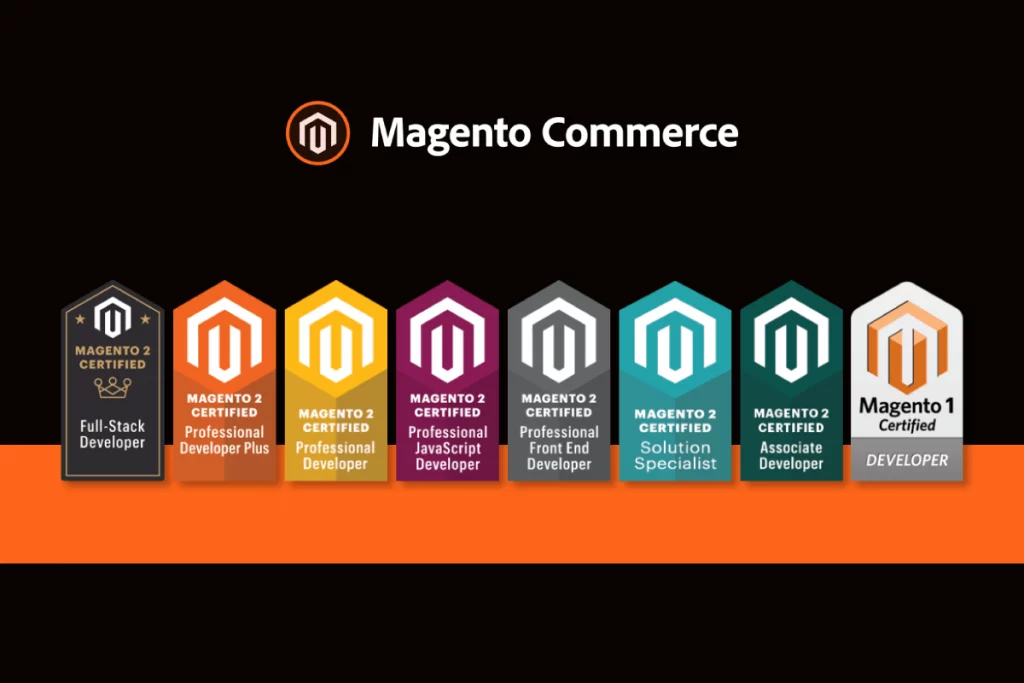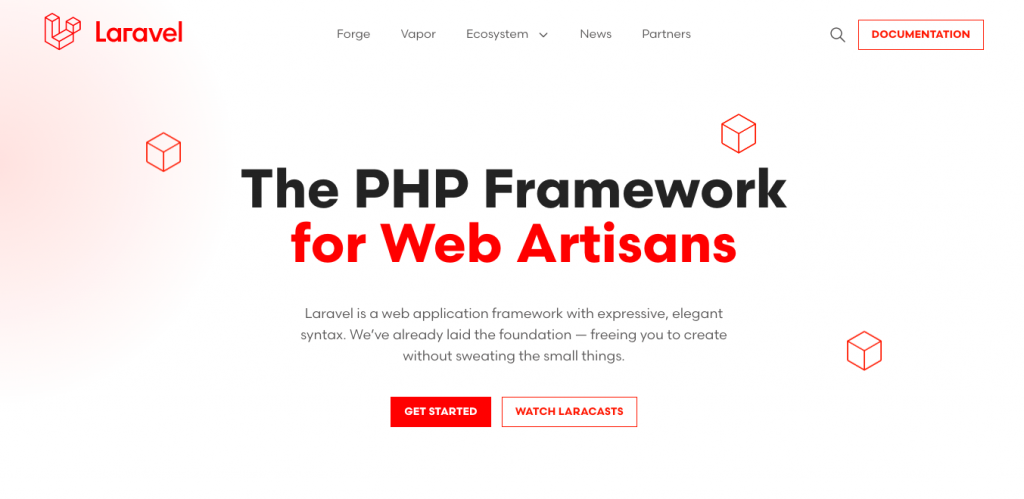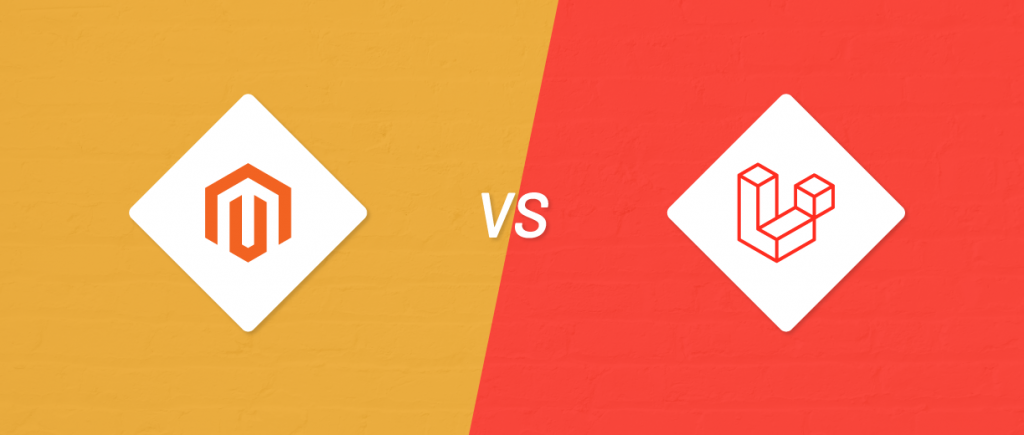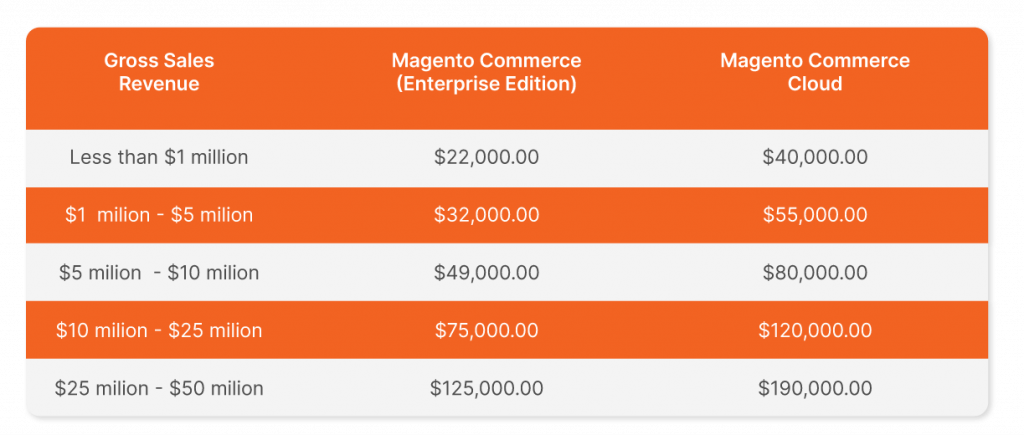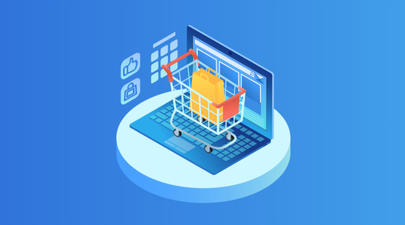In recent years we’ve seen how traditional commerce systems have been replaced by eCommerce – this trend is still going on today that many online businesses have to consider. Currently, for businesses that have just started the journey to build an online store, it is necessary to decide on a suitable framework to suffice their firm’s needs. And among the markets with numerous well-designed eCommerce platforms, Magento vs Laravel are two of the most popular frameworks for developing eCommerce stores. Both have their pros and cons, but which one is the best for your business?
In this post, we explore the differences between Magento vs Laravel and also take a look at the advantages of each platform to help you decide which one is right for you. Stay tuned!
Table of Contents
Magento vs Laravel – A General Overview
What Is Magento?
Magento is an open-source eCommerce platform written in PHP. Magento has been developing for over a decade, providing merchants all over the world with a practical and reliable approach to becoming major leaguers in the online community.
According to the billboard, Magento is unquestionably the best platform for eCommerce because of its 150k+ developers and 300+ expert solution providers. Magento now has three editions, including a free license (Magento Open Source) and two paid options (Magento 2 Enterprise and Magento Commerce Cloud).
Pros | Cons |
|
|
Among them, the last edition – Magento Commerce Cloud is a premium edition that allows companies easier flexibility when managing their online store without having any implications on hardware requirements or infrastructure management.
What Is Laravel?
Laravel is a free, open-source PHP web application framework used for developing web applications and APIs. It follows the model-view-controller (MVC) architectural pattern and provides a set of tools that make web development easier and more efficient.
Laravel offers a variety of features that make it popular among developers. It’s an open-source, server-side framework with MVC design for logical parts in your application’s back-end architecture making this easy to use and scalable across different devices or browsers without worrying about compatibility.
Pros | Cons |
|
|
Furthermore, with Laravel, you can create an omnichannel eCommerce platform that seamlessly integrates all of your physical and digital stores.
Magento vs Laravel: Key Comparison
Key Features and Functionality
Magento is capable of supporting a wide range of business models, including B2C, B2B, and B2M, and as a result, it can help your company reach corporate customers at every stage of the customer journey, from the initial point of contact through after the sale. This satisfies B2B consumers’ desires for personalization, emphasizes professionalism, facilitates online transactions, and increases sales volume.
Key features in Magento
- Market Segmentation: Magento allows you to create customized storefronts and pricing plans for different customer segments. This ensures that each customer feels valued and receives the best possible experience.
- Corporation Management: Magento offers robust tools for managing large quantities of product data and inventory. This makes it easy to keep track of what’s selling and restock quickly and efficiently.
- Quick Ordering Process: Magento’s Quick Ordering feature allows customers to order multiple items at once with just a few clicks. This saves time and ensures that orders are processed quickly and efficiently.
- Shipping & Payment Optimization: Magento’s shipping features are highly customizable, allowing businesses to optimize delivery times and costs. Magento’s payment processing options are among the most comprehensive in the industry, making it easy to accept payments from customers around the world.
- Customer Engagement: Magento offers a range of features that help businesses keep their customers happy and engaged. These features include customer profiling, personalized recommendations, and targeted promotions.
Key features of Laravel
Laravel offers many features that are perfect for businesses. Some of these features include MVC patterns, built-in security and performance enhancements, and support for payment services.
Laravel provides this stability and security while also being easy to use. Additionally, Laravel’s security features keep your data safe by thwarting common attacks. These features include input filtering, CSRF protection, and SQL injection prevention.
Laravel also integrates well with other third-party systems. This allows businesses to use the tools they are already familiar with and helps to avoid any compatibility issues. Additionally, the artisan tool in Laravel allows businesses to automate common programming tasks, saving them time and money. The CMS is SEO friendly, making it easy to get your website found by potential customers.
Integration
Magento is also better suited for businesses that need more sophisticated integration capabilities. It has a wider range of integrations available, as well as a more extensive developer community that can help you to get the most out of the system.
Laravel is still a very capable CMS, Laravel offers limited integrations but there are some available extensions from some third parties. It may not be the best choice for businesses that need to integrate with a lot of different systems.
Community Support
In more ways than one, community support is a vital factor to consider when deciding on the best PHP framework for your business. Laravel is growing and finding its place in the market. It is still carving out its own niche and hasn’t yet made its way into the general population. Laravel’s lack of contributors and young age makes it difficult for it to acquire the support it needs. Therefore, Magento has a plus here. And it’s not surprising that Magento has a larger community support network than Laravel. This means that there are more people available to help you with problems or answer your questions and that there are more resources available online to help you learn how to use Magento effectively.
Content Management
With the power of content creation tools, you can easily create your own unique shopping experience for customers without relying on developers or coding experts. The intuitive drag-and-drop interface allows you to blend media like images, videos, and banners into your websites creating a fresh new look for every page while keeping it fully customizable with ease.
Laravel, on the other hand, is a complex programming language that requires a high level of technical competence in order to build an effective eCommerce store. As a result, you’ll require an experienced Laravel developer to create and maintain your site.
Budget
Magento is also more expensive than Laravel. While both systems have premium and free versions, Magento’s premium version is more expensive but it offers more features and is more customizable.
If price is a concern, Laravel may be the better choice for your business. However, because it is a new framework, many developers prefer not to depend on it.
Code Complexity
One of the key distinctions between Magento and Laravel is code complexity. Magento is a more complex system – SQL scripting, requiring more time and expertise to learn and use effectively. Without being one of the original developers of the application, it will be extremely difficult for someone to look through the code produced by someone else and identify the problems. So it’s advisable to hire or look for elite Magento development services to help you establish a successful Magento website.
Unlike Magento, Laravel does away with the usual complex SQL scripting utilized by the platform and instead relies on a PHP-based syntax combined with ORM-based coding, which results in code that is incredibly structured and comprehensible. Because of the MVC framework, any Laravel developer can simply examine and debug the code generated by other developers in a timely manner.
Security
Increasingly, cyberattacks have become a major problem for a number of businesses. Therefore, selecting a platform with strong security is an efficient method of avoiding it. Let’s take a look at Laravel vs. Magento’s security.
Magento provides a Security Scan Tool that enables merchants to regularly monitor their sites and receive updates about known security risks, malware, or unauthorized access. It has a number of built-in security features that make it harder for hackers to penetrate your system and steal your data. If security is a top priority for your business, Magento is the better option.
Laravel offers various mechanisms such as passwords stored in an encrypted format through its Hash class which supports bcrypt-based salting for increased protection from hackers trying to discover your site’s secrets.
Testing Compatible
Another perk of the Laravel framework is it delivers real-time tests. Many frameworks today miss out on this unique feature. Testing is essential to check on your website’s performance and make amends to improve. Thus, this is a vital prospect you must look at in a framework. Magento employs a variety of testing methodologies to assure the quality of its products and code.
Easy of Available
Laravel is considered to be easier than Magento because it has a simpler user interface and less complexity. This makes Laravel more suitable for developers who are looking for something that they can easily understand without having difficulty with the codebase or understanding how things work under the surface
Laravle also happens to have been known over time as being one of the easiest platforms out there so this could very well account for why many people prefer using them.
In conclusion
Magento vs Laravel is an excellent choice for businesses looking for a content management system. However, Magento is more complex and expensive than Laravel and maybe a better choice for businesses that need more sophisticated integration capabilities or stronger security features. Laravel is simpler and easier to learn, making it a better choice for businesses that are new to CMSs or don’t have a lot of experience working with coding.
Our team at Magenest can help you decide which platform is best for your business and make sure that you are using it to its full potential. Contact us today to learn more about Magento vs Laravel and how we can help you choose the right one for your online store!


